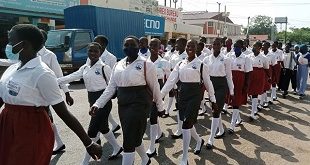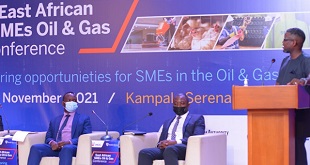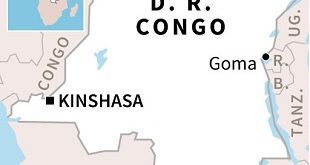
This brings us back to the present in South Africa. Many South Africans, especially Zulus, the tribe of Zuma, know that presidents like Pik Botha and de Klerk were responsible for mass murder and torture of their kin. As part of Mandela’s reconciliation, there were no criminal charges against those leaders of apartheid who committed these mass atrocities. How do they feel when they see their son, a former president, going to jail for contempt of court or on charges corruption? This is where the judicial system of South Africa and its political leadership have failed to read the signs – and may plunge that country into civil strife leading to the dismemberment of South Africa and its democratic institutions.
South Africa, and many other African countries, need to learn the risks of an idealistic pursuit of what is legally right. The common saying that never make the perfect the enemy of the good applies here. Indeed, in their 1983 classic song, the music group Atlantic Star, have a line that says: “How could something so wrong be so right.” The leaders of apartheid had oppressed and terrorised black people. It was so wrong not allow justice follow its course by taking them to court and trying them for mass murder. But Mandela understood that for the greater national good, it was important to place political reconciliation above criminal prosecution. Many wrongs of apartheid could only be righted by actions that would undermine political reconciliation and ultimately nation-building.
Given the deep ethnic and racial cleavages of South Africa, the arrest and detention Zuma are not a mere matter of law but of politics. Laws are made by politicians and their implementation should not threaten the integrity of the nation. Many Zulus may see the detention of Zuma, a symbol of their tribal pride, as an attack on their ethnic group generally. And this may have unforeseeable consequences. Justice should not only be done. It should be seen to be done. It seems to me that many Zulus do not see the detention of Zuma as a pursuit of justice but as a political vendetta.
In fact, South Africa can pick a leaf from the USA, a country which many African elites admire. After its civil war of 1861-64, America did not charge any of the leaders of secession in the South of treason. On the contrary, it accommodated them. Nearer home, after the genocide in Rwanda, Paul Kagame and his RPF colleagues recognised that criminal prosecution would deepen the wounds of hatred and division. So, they sought restorative justice through Gacaca courts. In all these cases, political reconciliation was placed above criminal prosecution and the results were bountiful. It is sad that South Africa has learnt no lessons from her own history and the consequences may be terrible – the dismemberment of that country.
****
amwenda@independent.co.ug
 The Independent Uganda: You get the Truth we Pay the Price
The Independent Uganda: You get the Truth we Pay the Price



The events in SA while regrettable and unfortunate, have again reminded us African peoples the complex relationship between criminality and tribal politics. PLO Lumumba likes putting it thus ‘he is a thief but he is our thief ‘. From the outset up to the day of his impeachment, the Zuma presidency was clearly aimed at assuasing some tribal tendencies. That he stole and other scandlelike prattles like unpaid Labolla.or when he claimed to have taken a bath after molesting a daughter of a former comrade seem to have been aimed at preparing the nation for the final showdown. One thing I have always argued is that the larger ethnic groups in Africa have played into the hands of our post colonial masterminds. Go to Kenya Nigeria, or even here in Uganda you see criminals prospering when their tribe is in power.This at all times has determined the direction of our politics and sadlly our judiciary. Even after jail Zuma will remain a richman and the average Zulu will feel one of their own has made it and the believer in justice will wonder what is wrong with their beliefs.
Thanks
Mr Anderea (Andrew) you’re mixing politics with criminology for convenience’s sake! And I do understand why you opine like that; because you know that as day follows night, whatever is happening in South Africa (xenophobia, tribal, racial etcetera lootings), is 99.9% likely to happen here in Uganda when finally M7/NRM is out of power!
What is happening in M7’s Uganda today – western Uganda versus the east and northern Uganda – is no less than apartheid!
It will happen when and not “if” is M7/ NRM is out of power
Unless you take deliberate steps and advice the emperor that he’s naked, today’s South Africa is visiting Uganda and time!
“No matter how long a pig stays in water it will never become a crocodile “
1.The mistake most Africans make is that they always have a scapegoat for their inefficiency. Something small can trigger a confrontation with the Whites.The riots that followed after the arrest of Zuma shouldn’t have taken place its just that the most of the security personnel are blacks and they were comprised thats why they just looked on as looting was taking place.
2.Even after the end of Slavery; The blacks still have issues with the Statutes that were erected in memory of the Whites who haunted their ancestors.
3.80% of the inhabitants of South Africa are Blacks while the 10% are Whites;This is naturally bound to cause chaos.
4.During the apartheid period; the whites should have set boundaries of where they would live and leave the rest to the Blacks.
5.The elites of then like Mandela,Desmond Tutu were overwhelmed and preoccupied with the end of apartheid which the Whites hoodwinked them into ending and instead surrendered Politics to the Blacks while they managed the Economy.
6. The Political fire brands like Julius Mwalema ,Zuma are preoccupied with Democracy they rarely advocate for Africans to have shares in Businesses in S.Africa all they rally for is increase in pay which is nothing compared to the resources in S.A.
7.The parliament of S.Africa should advocate for Nationalizing of the key resources and sources of income like Mimining,Industrilaztion,Toursim so that the Blacks can participate and enjoy the natural resources of South Africa otherwise if they dont advocate for that,the riots will never end.
The challenge is that black africans can
never master the economic fundamentals needed to run such a huge
economy like South Africas. They all aim
at Political Power which is easy to master through bribing and corrupting and use of raw force. Try that on the economy and you have the current scenarios of African economies.
One thing I’ll clarify you about is that F.W de Klerk did not commit any mass murders as you put it in your essay. I lived in South Africa during his tenure..